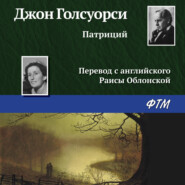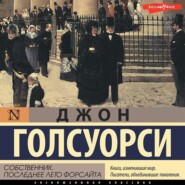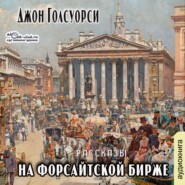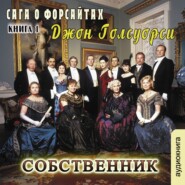По всем вопросам обращайтесь на: info@litportal.ru
(©) 2003-2024.
✖
Fraternity
Настройки чтения
Размер шрифта
Высота строк
Поля
Hilary asked gently:
“Well, my dear, what did you see?”
“Most of the doors are open – ”
Bianca murmured: “That doesn’t tell us much.”
“On the contrary,” said Martin suddenly, in a deep bass voice, “it tells you everything. Go on.”
“The Hughs live on the top floor at No. 1. It’s the best house in the street. On the ground-floor are some people called Budgen; he’s a labourer, and she’s lame. They’ve got one son. The Hughs have let off the first-floor front-room to an old man named Creed – ”
“Yes, I know,” Cecilia muttered.
“He makes about one and tenpence a day by selling papers. The back-room on that floor they let, of course, to your little model, Aunt B.”
“She is not my model now.”
There was a silence such as falls when no one knows how far the matter mentioned is safe to, touch on. Thyme proceeded with her report.
“Her room’s much the best in the house; it’s airy, and it looks out over someone’s garden. I suppose she stays there because it’s so cheap. The Hughs’ rooms are – ” She stopped, wrinkling her straight nose.
“So that’s the household,” said Hilary. “Two married couples, one young man, one young girl” – his eyes travelled from one to another of the two married couples, the young man, and the young girl, collected in this room – “and one old man,” he added softly.
“Not quite the sort of place for you to go poking about in, Thyme,” Stephen said ironically. “Do you think so, Martin?”
“Why not?”
Stephen raised his brows, and glanced towards his wife. Her face was dubious, a little scared. There was a silence. Then Bianca spoke:
“Well?” That word, like nearly all her speeches, seemed rather to disconcert her hearers.
“So Hughs ill-treats her?” said Hilary.
“She says so,” replied Cecilia – “at least, that’s what I understood. Of course, I don’t know any details.”
“She had better get rid of him, I should think,” Bianca murmured.
Out of the silence that followed Thyme’s clear voice was heard saying:
“She can’t get a divorce; she could get a separation.”
Cecilia rose uneasily. These words concreted suddenly a wealth of half-acknowledged doubts about her little daughter. This came of letting her hear people talk, and go about with Martin! She might even have been listening to her grandfather – such a thought was most disturbing. And, afraid, on the one hand, of gainsaying the liberty of speech, and, on the other, of seeming to approve her daughter’s knowledge of the world, she looked at her husband.
But Stephen did not speak, feeling, no doubt, that to pursue the subject would be either to court an ethical, even an abstract, disquisition, and this one did not do in anybody’s presence, much less one’s wife’s or daughter’s; or to touch on sordid facts of doubtful character, which was equally distasteful in the circumstances. He, too, however, was uneasy that Thyme should know so much.
The dusk was gathering outside; the fire threw a flickering light, fitfully outlining their figures, making those faces, so familiar to each other, a little mysterious.
At last Stephen broke the silence. “Of course, I’m very sorry for her, but you’d better let it alone – you can’t tell with that sort of people; you never can make out what they want – it’s safer not to meddle. At all events, it’s a matter for a Society to look into first!”
Cecilia answered: “But she’s, on my conscience, Stephen.”
“They’re all on my conscience,” muttered Hilary.
Bianca looked at him for the first time; then, turning to her nephew, said: “What do you say, Martin?”
The young man, whose face was stained by the firelight the colour of pale cheese, made no answer.
But suddenly through the stillness came a voice:
“I have thought of something.”
Everyone turned round. Mr. Stone was seen emerging from behind “The Shadow”; his frail figure, in its grey tweeds, his silvery hair and beard, were outlined sharply against the wall.
“Why, Father,” Cecilia said, “we didn’t know that you were here!”
Mr. Stone looked round bewildered; it seemed as if he, too, had been ignorant of that fact.
“What is it that you’ve thought of?”
The firelight leaped suddenly on to Mr. Stone’s thin yellow hand.
“Each of us,” he said, “has a shadow in those places – in those streets.”
There was a vague rustling, as of people not taking a remark too seriously, and the sound of a closing door.
CHAPTER III
HILARY’S BROWN STUDY
“What do you really think, Uncle Hilary?”
Turning at his writing-table to look at the face of his young niece, Hilary Dallison answered:
“My dear, we have had the same state of affairs since the beginning of the world. There is no chemical process; so far as my knowledge goes, that does not make waste products. What your grandfather calls our ‘shadows’ are the waste products of the social process. That there is a submerged tenth is as certain as that there is an emerged fiftieth like ourselves; exactly who they are and how they come, whether they can ever be improved away, is, I think, as uncertain as anything can be.”
The figure of the girl seated in the big armchair did not stir. Her lips pouted contemptuously, a frown wrinkled her forehead.
“Martin says that a thing is only impossible when we think it so.”
“Faith and the mountain, I’m afraid.”
Thyme’s foot shot forth; it nearly came into contact with Miranda, the little bulldog.
“Oh, duckie!”
But the little moonlight bulldog backed away.
“I hate these slums, uncle; they’re so disgusting!”

















